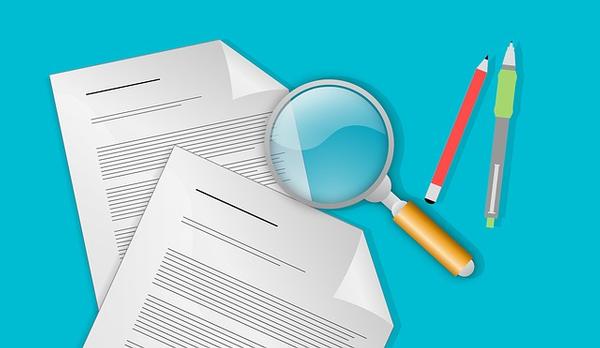Tax season is over...now what?
May 9, 2019
Tax season is coming to a close, and you might be wondering what records should you keep and which you should destroy. Many of our clients from the Denver, Aurora, Littleton and surrounding areas have questions about what tax documents they should keep, and for how long. We’ve put together the following Denver tax guidelines to help you, and our clients, determine what they should and shouldn’t keep when it comes to tax documentation.
Why You Should Keep Tax Documents
You want to keep tax documents in case you are audited by the Internal Revenue Service (IRS) - failure to produce documents in the event of an audit can cause pretty major issues for you and your financial state. If you are looking to purchase property anytime soon you might also need to produce tax returns from previous years to give the lender an idea of your financial standing. If you are looking to send your children to college, you might also need to use your previous year’s tax returns on the Free Application for Federal Student Aid (FAFSA).
What You Should Keep
It’s important to keep all documents related to filing your tax return. This would include W2s, 1099s, mileage tracking documents, receipts, and additional paperwork that was used when determining your deductions and tax claims. If you are unsure whether you should keep the document or not, check with your creditors and insurance agencies.
If you made any significant home improvements - keep these records as well. Home improvements can raise the value of your home, and you might be able to write some improvements off on your tax return. Investment records, as well as real estate records, should also be kept.
If you decide to store these documents electronically, make sure they are stored on a hard drive that is password protected. Anytime you open these documents, make sure you do so on your own personal computer and when you are connected to your personal secured wifi. It’s also beneficial to avoid storing important financial documents on a computer that is consistently connected to wifi - it gives hackers a greater chance of breaking into your documents.
How Long Should You Keep These Documents
You should plan to keep tax documents for three years after your filing year. Three years is the statute of limitations for the IRS. The three year statute of limitations is the time you have to claim any refunds owed to you, and the time the IRS has to collect any debt from you.
However, there is a caveat to the three year rule. Always keep tax documentation related to retirement accounts for at least seven years, and any tax documentation related to property needs to be kept up until the third year after you’ve sold the property. If you’re filing a claim for a worthless securities or bad debt deductions, save records for seven years.
There are some tax professionals who advocate for keeping your tax documents forever. This can be because if the IRS doesn’t think you filed a return for any given year, you will need to provide proof that you did. However, this can cause a major problem if you aren’t able to file taxes in a safe/secure location. When filing hard copies of tax documents at home, we recommend storing them in a fireproof safe - keeping them safe from thieves and protected in case of an emergency.
What You Should Toss
There are a few documents you might have been saving that you don’t necessarily need to save for a long period of time. You are completely safe to dispose of ATM receipts, bank deposit statements, credit card statements, and other financial records. If you’d like to keep these for your own personal reasons that is completely okay - just know you won’t need them for taxes.
You can toss any utility bill records (unless you claim your office as a home office), paycheck stubs (once compared with your W2), and credit card statements unless you used them for tax purposes. Unless you used receipts for filing your tax return, you are also welcome to throw away your box of receipts at the end of the year.
How You Should Dispose of the Documents
When disposing of the hard copies of documents we strongly recommend using a shredder. Throwing your documents into a trash can is definitely not the safest way of doing so and gives people the opportunity to steal your data. Anything with a social security number, birth date, or account number automatically falls within the shredding category. If you’d like to be extremely careful when it comes to disposing of your documents, you can even shred documents in two different waste baskets. You can purchase shredders that cross shred, making the documents almost impossible to re-piece together.
If you have a lot of documents to dispose of and don’t have ready access to a shredder, talk with your tax preparer or bank. Often times these are valuable resources you can turn to when in need of help or when you need additional assistance with these minor tasks. Just be careful when disposing of tax documents, particularly if you store all documents within the same place. You don’t want to accidently shred birth certificates, marriage certificates, house deeds, life insurance policies, or wills. These documents aren’t easily replaced, if at all, and are needed in making most major purchases.
Determining what documents to save when filing taxes can be tricky, but it doesn’t have to be. The guidelines we have provided aren’t necessarily the only things you should consider, but they are a good starting point. If you are unsure of what documents you should save, or if you have any additional questions please reach out to our Advanced Tax Solutions team today. We are here to help you determine what tax documents you should be saving and how to best store them. If you have any additional questions or requests, even unrelated to tax document disposal or storage, we are always here to help.
Go Back Why You Should Keep Tax Documents
You want to keep tax documents in case you are audited by the Internal Revenue Service (IRS) - failure to produce documents in the event of an audit can cause pretty major issues for you and your financial state. If you are looking to purchase property anytime soon you might also need to produce tax returns from previous years to give the lender an idea of your financial standing. If you are looking to send your children to college, you might also need to use your previous year’s tax returns on the Free Application for Federal Student Aid (FAFSA).
What You Should Keep
It’s important to keep all documents related to filing your tax return. This would include W2s, 1099s, mileage tracking documents, receipts, and additional paperwork that was used when determining your deductions and tax claims. If you are unsure whether you should keep the document or not, check with your creditors and insurance agencies.
If you made any significant home improvements - keep these records as well. Home improvements can raise the value of your home, and you might be able to write some improvements off on your tax return. Investment records, as well as real estate records, should also be kept.
If you decide to store these documents electronically, make sure they are stored on a hard drive that is password protected. Anytime you open these documents, make sure you do so on your own personal computer and when you are connected to your personal secured wifi. It’s also beneficial to avoid storing important financial documents on a computer that is consistently connected to wifi - it gives hackers a greater chance of breaking into your documents.
How Long Should You Keep These Documents
You should plan to keep tax documents for three years after your filing year. Three years is the statute of limitations for the IRS. The three year statute of limitations is the time you have to claim any refunds owed to you, and the time the IRS has to collect any debt from you.
However, there is a caveat to the three year rule. Always keep tax documentation related to retirement accounts for at least seven years, and any tax documentation related to property needs to be kept up until the third year after you’ve sold the property. If you’re filing a claim for a worthless securities or bad debt deductions, save records for seven years.
There are some tax professionals who advocate for keeping your tax documents forever. This can be because if the IRS doesn’t think you filed a return for any given year, you will need to provide proof that you did. However, this can cause a major problem if you aren’t able to file taxes in a safe/secure location. When filing hard copies of tax documents at home, we recommend storing them in a fireproof safe - keeping them safe from thieves and protected in case of an emergency.
What You Should Toss
There are a few documents you might have been saving that you don’t necessarily need to save for a long period of time. You are completely safe to dispose of ATM receipts, bank deposit statements, credit card statements, and other financial records. If you’d like to keep these for your own personal reasons that is completely okay - just know you won’t need them for taxes.
You can toss any utility bill records (unless you claim your office as a home office), paycheck stubs (once compared with your W2), and credit card statements unless you used them for tax purposes. Unless you used receipts for filing your tax return, you are also welcome to throw away your box of receipts at the end of the year.
How You Should Dispose of the Documents
When disposing of the hard copies of documents we strongly recommend using a shredder. Throwing your documents into a trash can is definitely not the safest way of doing so and gives people the opportunity to steal your data. Anything with a social security number, birth date, or account number automatically falls within the shredding category. If you’d like to be extremely careful when it comes to disposing of your documents, you can even shred documents in two different waste baskets. You can purchase shredders that cross shred, making the documents almost impossible to re-piece together.
If you have a lot of documents to dispose of and don’t have ready access to a shredder, talk with your tax preparer or bank. Often times these are valuable resources you can turn to when in need of help or when you need additional assistance with these minor tasks. Just be careful when disposing of tax documents, particularly if you store all documents within the same place. You don’t want to accidently shred birth certificates, marriage certificates, house deeds, life insurance policies, or wills. These documents aren’t easily replaced, if at all, and are needed in making most major purchases.
Determining what documents to save when filing taxes can be tricky, but it doesn’t have to be. The guidelines we have provided aren’t necessarily the only things you should consider, but they are a good starting point. If you are unsure of what documents you should save, or if you have any additional questions please reach out to our Advanced Tax Solutions team today. We are here to help you determine what tax documents you should be saving and how to best store them. If you have any additional questions or requests, even unrelated to tax document disposal or storage, we are always here to help.



















